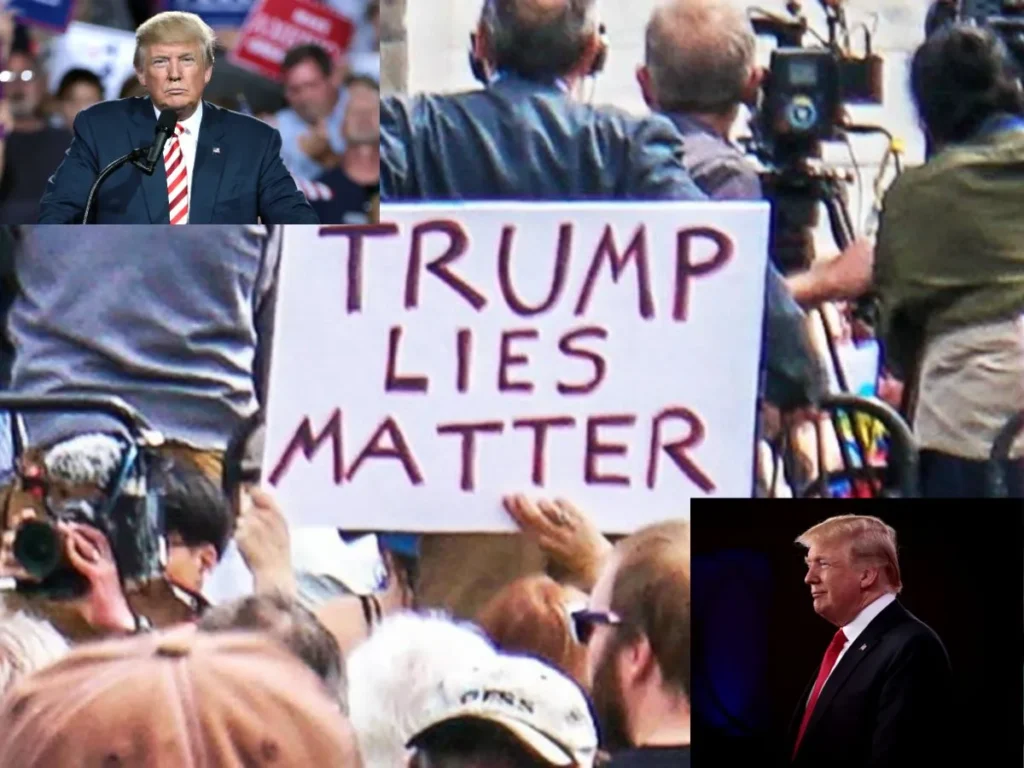Table of Contents
ToggleDonald Trump Becomes First Ex-US President to Be Convicted of a Crime
In a landmark decision, former US President Donald Trump was found guilty on 34 felony counts of falsifying business records in a New York state court. This marks the first time in American history that a former president has been convicted of a crime. The trial, which captivated the nation, concluded with a unanimous verdict from the jury, highlighting an unprecedented moment in the US judicial system.
Background of the Case
The charges against Donald Trump stem from allegations that he orchestrated hush money payments to adult film star Stormy Daniels to influence the outcome of the 2016 presidential election. These payments were purportedly made to silence Daniels about an alleged sexual encounter with Trump. The case brought to light a complex web of financial transactions and raised questions about the integrity of the electoral process.
The Trial
The trial began with much fanfare in Manhattan. Over several weeks, the court heard testimony from various witnesses, including Trump’s former personal lawyer, Michael Cohen. Cohen, often referred to as Trump’s “fixer,” provided crucial evidence that linked Trump directly to the payments. The jury deliberated for over 11 hours before delivering their verdict, marking the end of a highly publicized legal battle.
Details of the Charges
Trump faced 34 counts of falsifying business records, each tied to specific financial documents, including invoices, checks, and ledger entries. These records were allegedly altered to disguise the true nature of the hush money payments. The falsification of these documents constituted a deliberate attempt to mislead investigators and the public.
The Verdict
The jury’s decision was unanimous, finding Donald Trump guilty on all counts. This outcome was a significant blow to Trump, who has repeatedly denied any wrongdoing. The verdict underscored the gravity of the charges and the strength of the evidence presented by the prosecution.
Trump’s Reaction
Following the verdict, Trump condemned the trial as a “rigged, disgraceful process” and continued to assert his innocence. He framed the decision as a politically motivated attack, a narrative he has maintained throughout the proceedings. In a brief statement outside the courthouse, Trump vowed to continue fighting the charges and hinted at an appeal.

Prosecution’s Perspective
Manhattan District Attorney Alvin Bragg, who led the prosecution, emphasized the importance of upholding the rule of law. He stated that the case was decided purely on the basis of evidence and legal principles, rejecting claims of political bias. Bragg praised the jury for their diligence and reaffirmed his commitment to justice.
Defense Arguments
Trump’s legal team argued that the trial was a politically motivated effort to derail his potential 2024 presidential campaign. They contended that the charges were unfounded and that the evidence presented by the prosecution was insufficient. Despite these arguments, the jury’s verdict reflected a strong consensus against Trump’s defense.
Political Implications
The conviction has significant implications for Trump’s political future. As the presumed 2024 Republican presidential nominee, Trump’s status as a convicted felon complicates his campaign. Republican leaders have rallied behind him, decrying the verdict as an abuse of the judicial system, while Democrats view it as a validation of legal accountability.
Public Opinion
Public reaction to the verdict has been polarized. Donald Trump’s supporters see the conviction as a political witch hunt, while his opponents believe justice has been served. Media coverage has further fueled this divide, with contrasting narratives emerging from different outlets.
Legal Consequences
Trump now faces potential penalties ranging from probation to up to four years in prison for each count of falsifying business records. The sentencing is scheduled for July 11, just days before the Republican National Convention. Additionally, Trump is still entangled in several other legal battles, including federal cases related to the 2020 election and classified documents.
Historical Context
This conviction sets a precedent in American history, highlighting the judiciary’s role in holding even the highest office accountable. Comparisons have been drawn to past political scandals, but this case stands out due to the involvement of a former president and its potential impact on future presidential campaigns.
Impact on Future Elections
The conviction could significantly influence voter behavior in the upcoming elections. Donald Trump’s legal troubles might sway undecided voters and galvanize his base. The 2024 election is poised to be one of the most contentious in US history, with Trump’s legal status playing a central role.
Conclusion
The conviction of Donald Trump on 34 felony counts marks a watershed moment in American legal and political history. It underscores the principle that no one is above the law, regardless of their position. As Trump prepares for an appeal and continues his political ambitions, the nation remains deeply divided over the implications of this historic verdict.